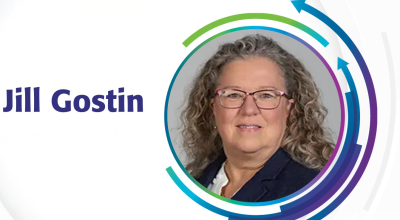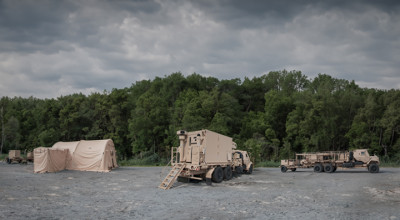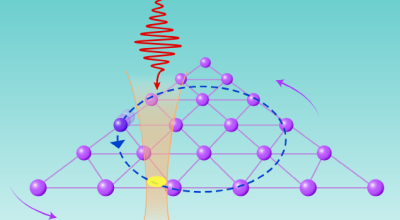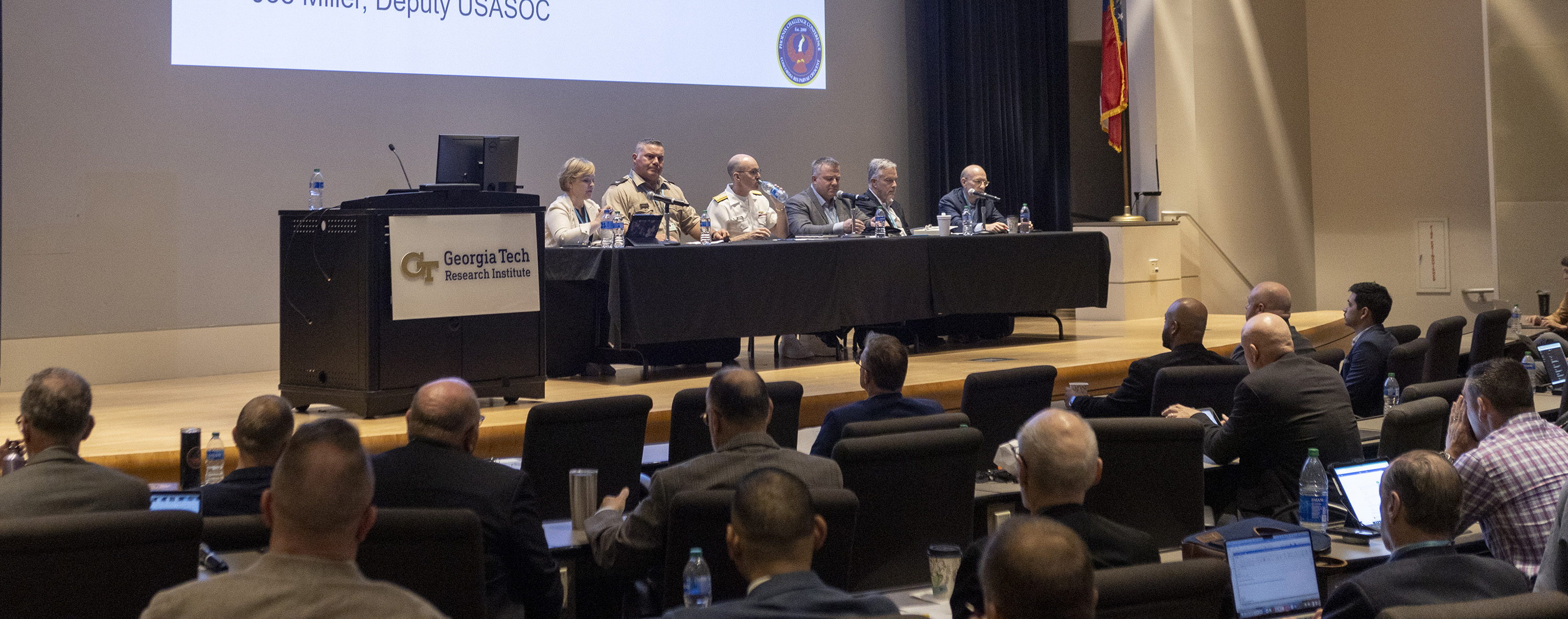
Generative AI has captured worldwide attention for its potential applications in such areas as disease diagnosis, data analysis, writing, and computer coding. But at a recent meeting held at the Georgia Tech Research Institute (GTRI) in Atlanta, attendees were concerned about how very different applications of AI may be affecting critical operations in the information environment (OIE).
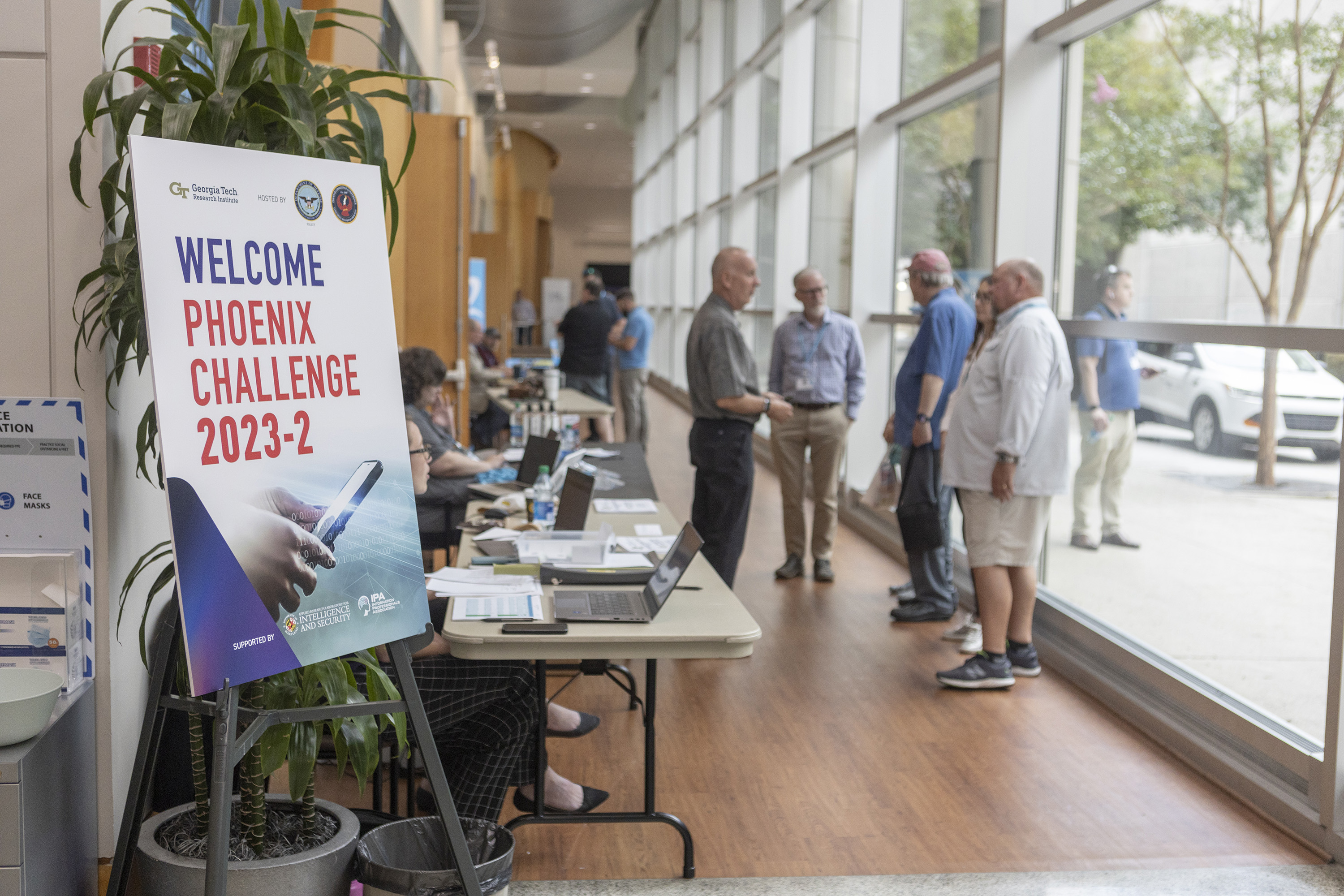
Nearly 250 attendees from more than 200 government, academic, and industry organizations convened at the Phoenix Challenge June 20-23 to discuss how misinformation, disinformation, and the propagation of bad information may affect the world – and how organizations across those three sectors can work together to address growing concerns about the effects of what’s happening in this arena. Although AI was among the top concerns, there were many other issues on the agenda.
The conference was organized for the Office of the Undersecretary of Defense for Policy (OUSDP) by GTRI, the University of Maryland Applied Research Laboratory for Intelligence and Security (ARLIS), and the Information Professionals Association.
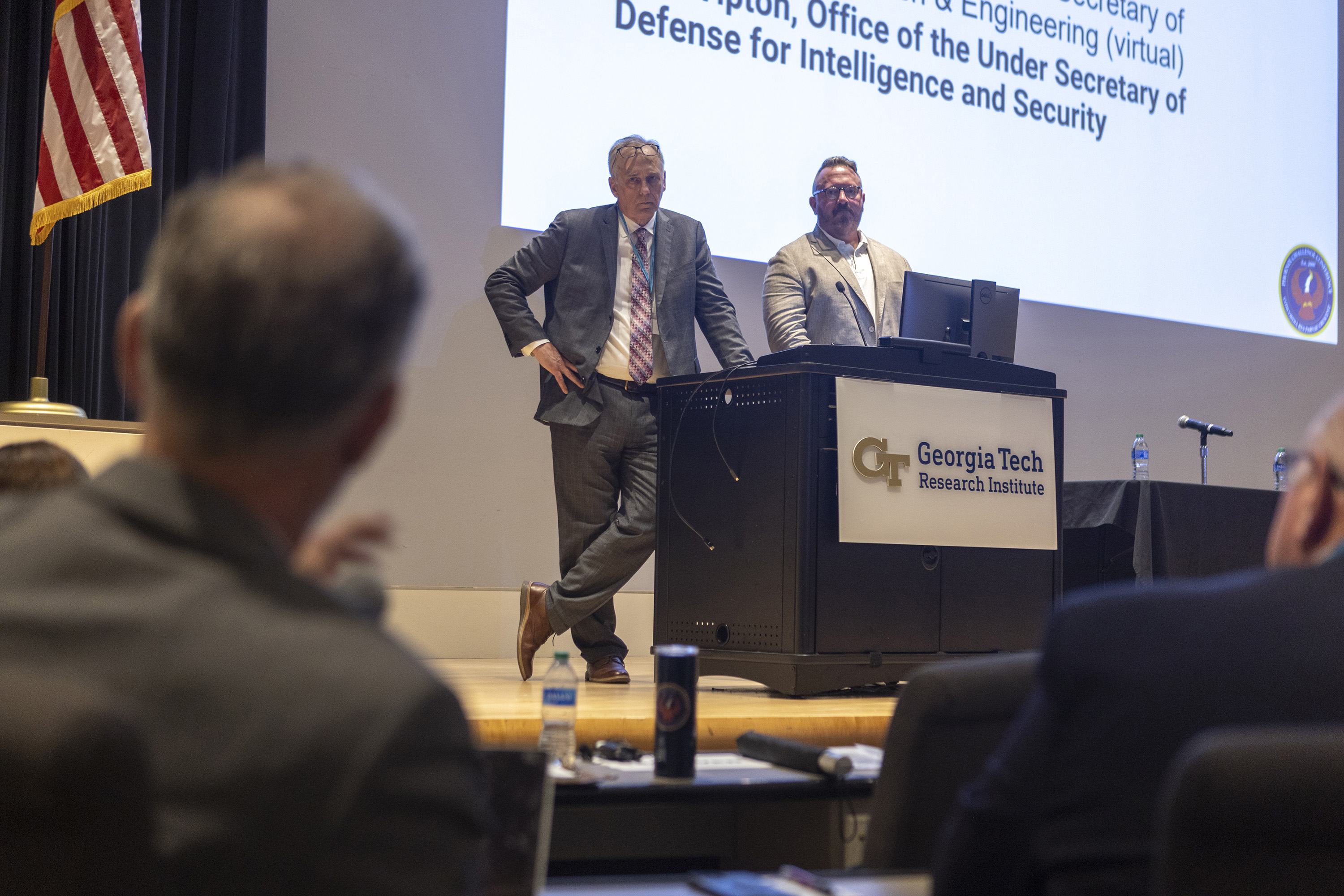
The June Phoenix Challenge conference was part of a series of events designed to promote collaboration on efforts ranging from research and acquisition to operational planning and execution, with goals of reducing enterprise ambiguity in the Department of Defense, promoting awareness, and exchanging information. Recommendations coming out of the meeting’s working groups are being briefed to appropriate offices in the Department of Defense and other agencies.
“The idea for the Phoenix Challenge is to create a watering hole where everyone can participate with equal standing,” said Austin Branch, professor of the practice at ARLIS, which is funded by the OUSDP to convene the Phoenix Challenge events. “By bringing these communities together, government can enjoy additional critical thinking and testing of ideas, offering new concepts, technologies, and methodological approaches in an environment that’s collaborative and includes everyone.”
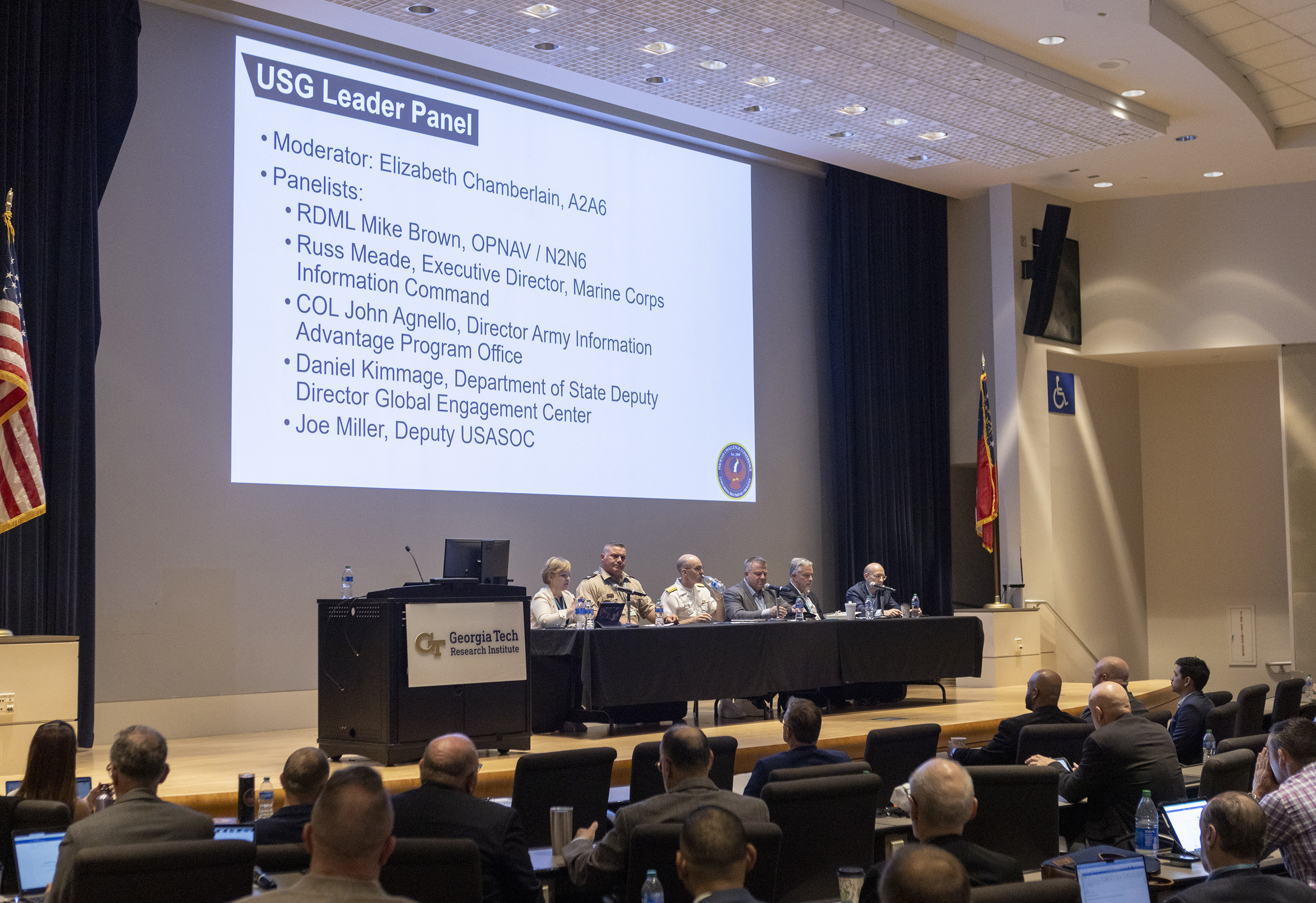
OIE – a discipline that in years past was known as information warfare – can include such topics as electronic warfare, cyber operations, military deception, and psychological operations in a broad cognitive security space. “The Phoenix Challenge is a recognized platform for collaboration and sharing, in both technical and non-technical areas, and in the hard sciences and soft sciences,” Branch said. “Participants have to be prepared to work because we’re working on solutions, and there is a sense of mutual accountability.”
Beyond the recommendations to the government, participants from industry and academic communities benefit from obtaining a better understanding of the government’s needs, plans, and concerns.
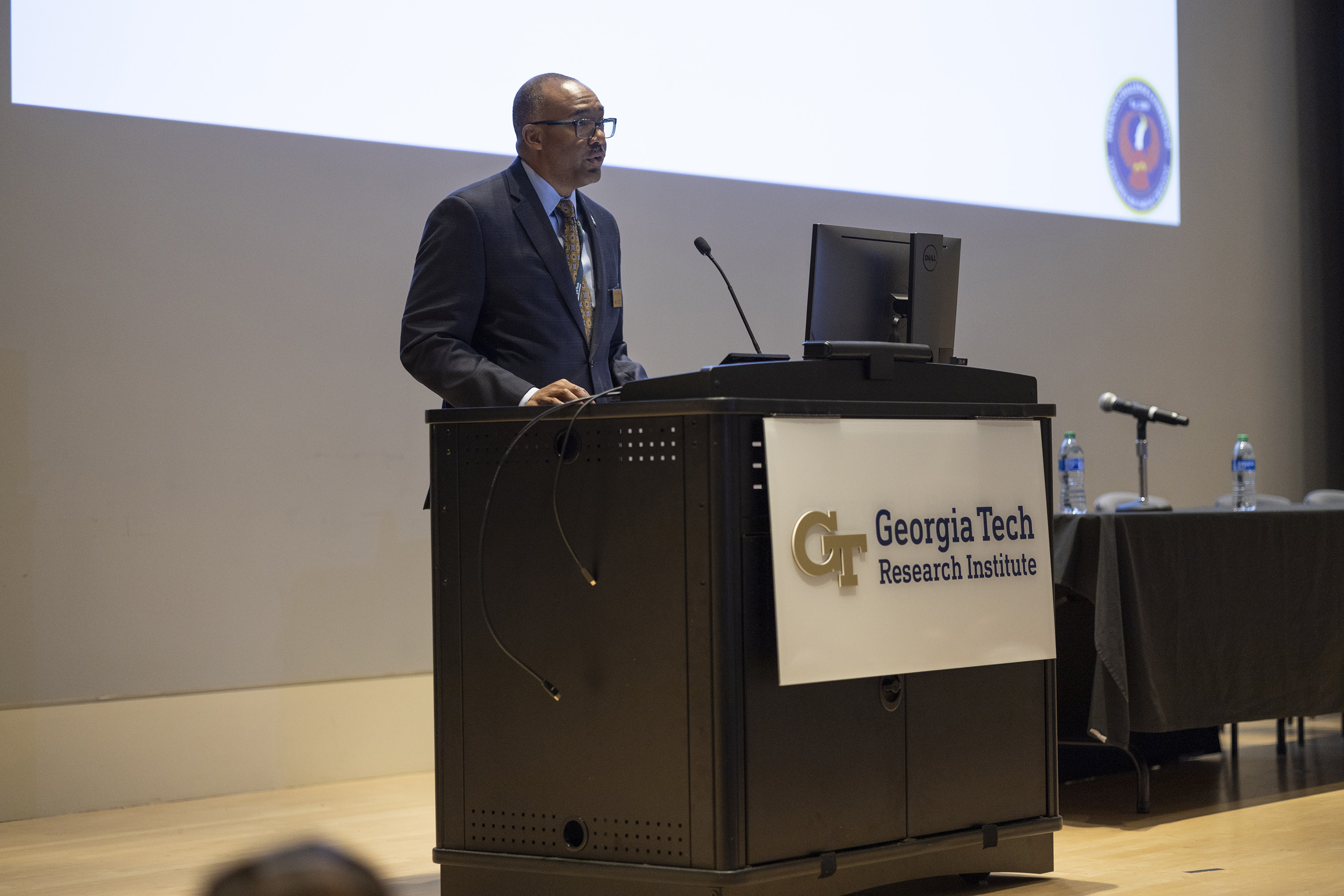
“Here, we can have everybody concentrated and focused, with a great value proposition in being able to reduce ambiguity about what the requirements are and for the government to articulate what the needs are, then allow this broader enterprise to work on those things,” Branch added.
At the Atlanta meeting, there were three panel discussions, including one on generative AI, which has both positive and negative implications for the world’s information environment.
“This technology is going to have an enormous impact on us going forward,” said Theresa Kessler, a GTRI research scientist who was among the Atlanta event’s organizers. “AI and machine learning tools can make the OIE challenges worse, or be used to make them better. There’s also a cybersecurity component and the human element of how people can be so accepting of bad information.”
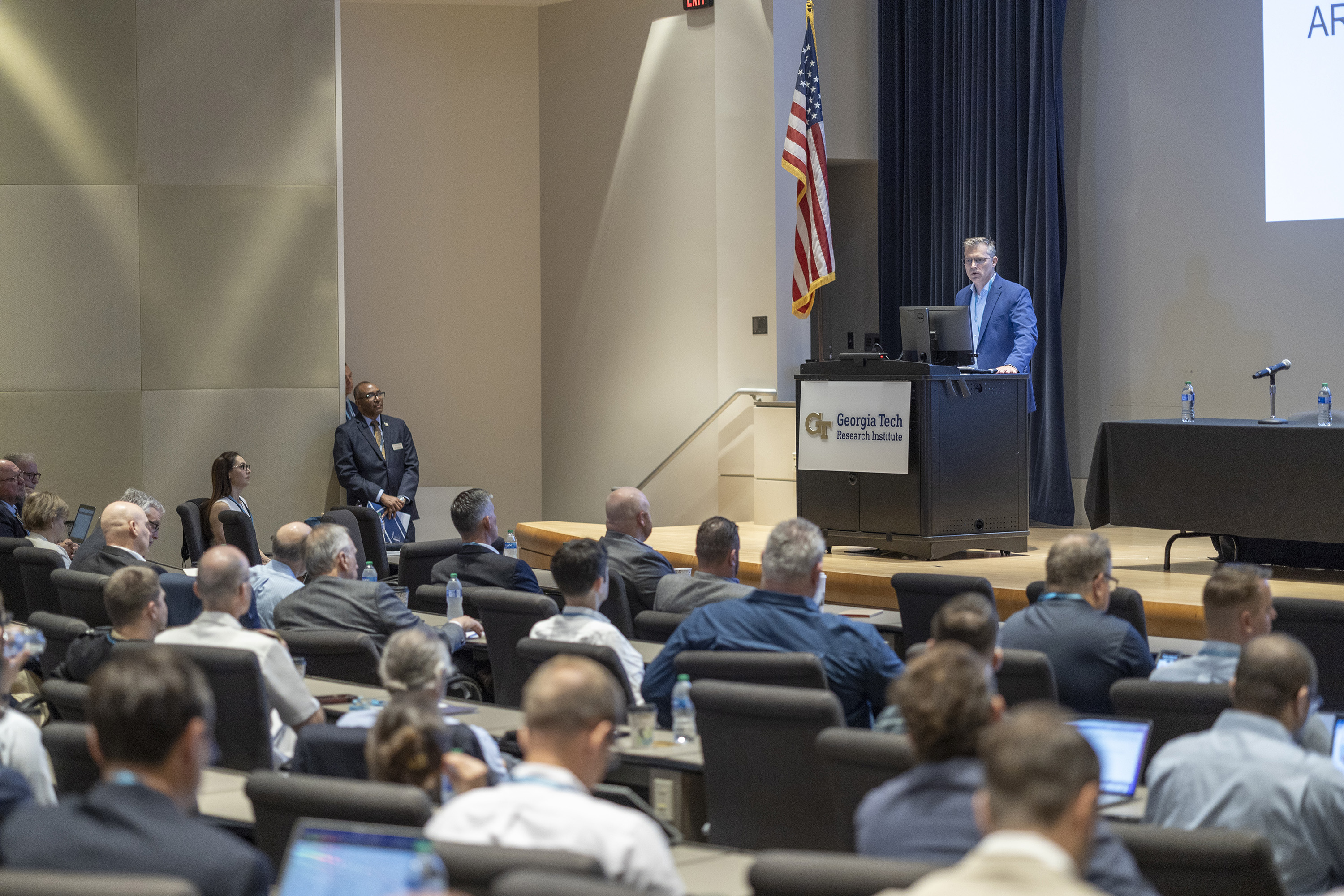
The goals of the Phoenix Challenge include much more than identifying the issues. Attendees participated in six working groups organized to highlight potential solutions and make recommendations to be considered by the government. And those making the recommendations are expected to play a role in carrying them out.
“Ultimately, the goal is to affect the national defense strategy, with these output products, recommendations that the working groups built,” Kessler explained. “We had a huge representation of industry partners, along with academic participants, including multiple universities, University Affiliated Research Centers (UARCs), and Federally-Funded Research and Development Centers (FFRDCs). Each of our working groups had a representation from industry, government, and academia.”
That broad representation helped provide a perspective not limited to a single constituency, she said. “The working groups were designed and facilitated in a way that everybody’s opinion was pulled in and valued. Involving all these different groups provides a more holistic presentation of the problem and the solution set.”
In addition to a classified working group, the breakout sessions focused on:
- Inputs to the R&D Roadmap for OIE Technologies.
- Detection and Beyond: Implementing Effective Technological Solutions to Emerging OIE Threats.
- Applied Research: Assessments.
- Strategy for Operations in the Information Environment (SOIE) Implementation Plan Framework.
- Resilience to Adversary Disinformation.
Among the conference speakers were:
- Todd Breasseale (Deputy Assistant to the Secretary for Public Affairs, Office of Information Operations Policy).
- LtGen (R) Dennis Crall, USMC.
- Heidi Shyu, Under Secretary of Defense for Research and Engineering (OUSD(R&E)), who addressed the conference virtually.
- Neill Tipton, Director for Defense Intelligence, Collection and Special Programs.
The June Phoenix Challenge event was the first hosted by GTRI, but the event has a long history, beginning decades ago and including recent meetings in London and Charleston, South Carolina. In 2022, GTRI hosted an Information Warfare Summit on its Atlanta campus, but elected to join forces with the Phoenix Challenge in 2023. The next event is likely to be held in the Washington, D.C., area during 2024.
Writer: John Toon (john.toon@gtri.gatech.edu)
GTRI Communications
Georgia Tech Research Institute
Atlanta, Georgia

The Georgia Tech Research Institute (GTRI) is the nonprofit, applied research division of the Georgia Institute of Technology (Georgia Tech). Founded in 1934 as the Engineering Experiment Station, GTRI has grown to more than 2,900 employees, supporting eight laboratories in over 20 locations around the country and performing more than $800 million of problem-solving research annually for government and industry. GTRI's renowned researchers combine science, engineering, economics, policy, and technical expertise to solve complex problems for the U.S. federal government, state, and industry.


